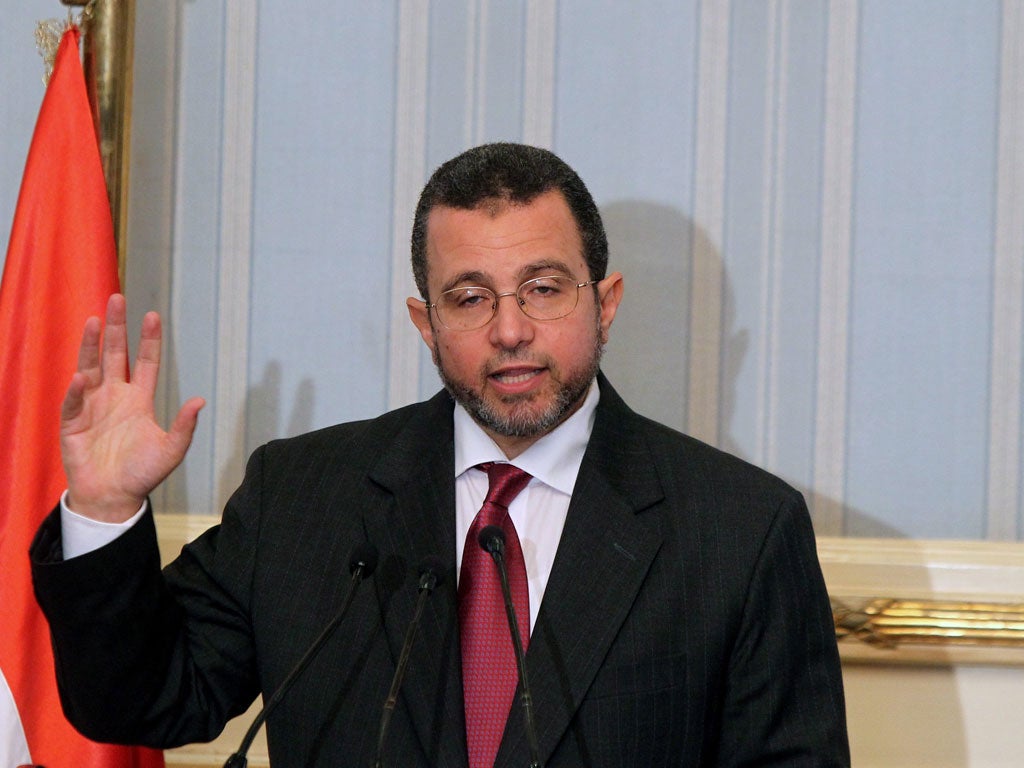Egypt’s prime minister faces suit for slander after claiming infants contracted diarrhoea from 'unclean breasts'

Your support helps us to tell the story
From reproductive rights to climate change to Big Tech, The Independent is on the ground when the story is developing. Whether it's investigating the financials of Elon Musk's pro-Trump PAC or producing our latest documentary, 'The A Word', which shines a light on the American women fighting for reproductive rights, we know how important it is to parse out the facts from the messaging.
At such a critical moment in US history, we need reporters on the ground. Your donation allows us to keep sending journalists to speak to both sides of the story.
The Independent is trusted by Americans across the entire political spectrum. And unlike many other quality news outlets, we choose not to lock Americans out of our reporting and analysis with paywalls. We believe quality journalism should be available to everyone, paid for by those who can afford it.
Your support makes all the difference.Egypt’s prime minister is facing a suit for slander after televised comments suggesting that Egyptian infants contracted diarrhoea from nursing at their mothers’ unclean breasts drew widespread derision and anger.
The footage casts an unflattering light on Hisham Qandil, a obscure technocrat whose appointment last summer by Mohammed Morsi, Egypt’s Islamist president, was greeted with surprise by many who believed he lacked the political and economic experience for the job.
Responding to a question at a press conference on whether poverty has contributed to the recent unrest that has left dozens dead, Mr Qandil, a former irrigation minister, attempted in a rambling response to demonstrate his familiarity with the extent of Egypt’s poverty, but instead looked out of touch.
“I am certain, I don’t know, but am certain, that there are still villages in Egypt in the 21st century where babies get diarrhoea … [because] their mothers nursing them, out of their ignorance, don’t do the personal hygiene of cleaning their breasts,” he said in remarks aired by state broadcaster Nile TV this week.
Drawing on his experiences visiting villages in Beni Suef, a province south of Cairo, nearly a decade ago, he spoke of dire conditions. “There is no running water or sewage,” he said.
Mr Qandil, an agricultural engineer with a doctorate from a US university, went on to say that men in the villages go the mosque to pray, while “women go to the field and get raped,” an assertion that left many watchers unsure of what exactly he was trying to say.
His remarks attracted intense criticism, and a group of women from Beni Suef promptly filed a suit against the prime minister, alleging that he slandered its female residents by suggesting they did not pay enough attention to their personal hygiene, making their children ill.
Breastfeeding is widely considered the best way to protect infants from illness, including diarrhoea, in areas where there is poor sanitation and little access to running water.
The timing of his remarks was seen as particularly unfortunate, diverting attention from some of the worst unrest since the uprising two years ago that ousted Hosni Mubarak. At least 59 people have died in protests across the country in the past two weeks that have plunged the country into deeper political and economic turmoil.
Dina Abdel Fattah, a talkshow host on the independent Tahrir network, said, “Can you imagine, an Egyptian prime minister addressing a topic like that, while we have martyrs in the street, we have people being killed every day, we have entire provinces in a state of unrest?”
On Twitter, the mood was more light-hearted. One user quipped: “I wish someone would tell Qandil that it's not women's breasts that … cause diarrhoea, but rather this administration.”
Others said his remarks were typical of the patriarchal views held by many in Egypt, where women are often used as a scapegoat for societal problems. “His outburst is reflective of the new Islamist leadership's … obsession with women and the female body, and their apparent conviction that all society's ills can be traced back to a woman's breasts and vagina,” Egyptian-Belgian journalist Khaled Diab wrote in the Huffington Post.
Mr Qandil is not the only one to have caused offence in recent days. A Salafist preacher suggested in recent days that women who went to Egypt’s Tahrir Square, the epicenter of the revolutionary movement, were asking to be raped.
Join our commenting forum
Join thought-provoking conversations, follow other Independent readers and see their replies
0Comments